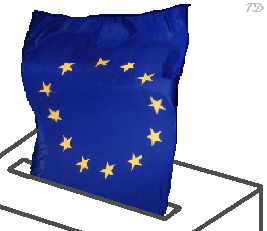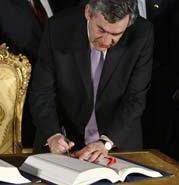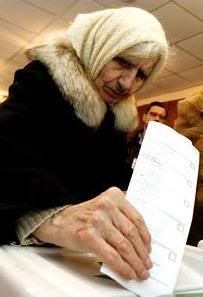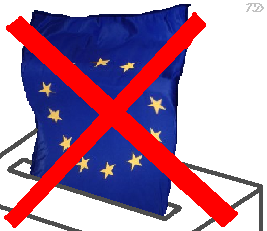 Nick Clegg has broken his party's 2005 manifesto commitment to supporting a referendum on the EU
Nick Clegg has broken his party's 2005 manifesto commitment to supporting a referendum on the EU Constitution Treaty. He is, however, following on from Ming Campbell, who also opposed letting the people of Britain vote on the one piece of legislation which will dictate how this country works for the foreseeable future. Clegg said:
We would support the government by not voting for a referendum.
The principle at stake here is: are we going to carry on doing what the Conservatives are doing? Playing games with the treaty itself, which let's remember is in effect a series of amendments to a sort of edifice of treaties already in place? Do you do that? I do not believe that is right, which is why we will not be voting for a referendum on the treaty.
But he is wrong - in every way. It is not "playing games with the treaty itself" or specifically 'party politics' to suggest that the very people who are supposed to give parliament it's power should be allowed to vote on it, considering that all the main parties were elected with promises of a referendum on this issue in their manifestos. Since two of those parties have broken their pledges, they really don't have that democratic right any more to decide this issue at the very least.
The "Lisbon Treaty" as it is now called is not "a series of amendments to a sort of edifice of treaties already in place" but far more than a codification of existing treaties - and even that would be subject to a referendum, just like any codification of the British constitution would have to be - since it provides the very foundations of the removal of sovereign power [even if, as
some claim, that has already begun] in the creation of an EU President and Foreign Minister.
Quite simply, Clegg's refusal to push for a referendum on this puts the lie to the very name of his party - the Liberal
Democrats. Maybe that's why there are
rumours of him wanting to change to to the "Liberal Party" instead?
The idea of a referendum is
not about getting the treaty voted down, but about democratic legitimacy. If a popular vote has been held, no-one who opposed the treaty can possibly argue against it being ratified and becoming law. If we the people vote for the treaty then those of us who oppose it would accept it. But if it is passed through a Parliament which promised to hold a referendum on this when it was voted in refuses to meet it's promises, then the opposite
will happen.
Such large changes as proposed by the "Lisbon Treaty" require a referendum - or at least it should in the eyes of any true believer democrat.
UPDATE: At least
all Lib Dems
aren't as anti-democratic as their leaders [via
DK].
UPDATE 2:
Norfolk Blogger yet again shows why his blog is one of the few Lib Dem blogs I bother to read.
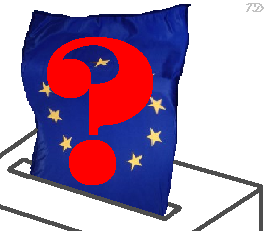 Nick Clegg wants a vote on EU membership but not on the
Nick Clegg wants a vote on EU membership but not on the 


